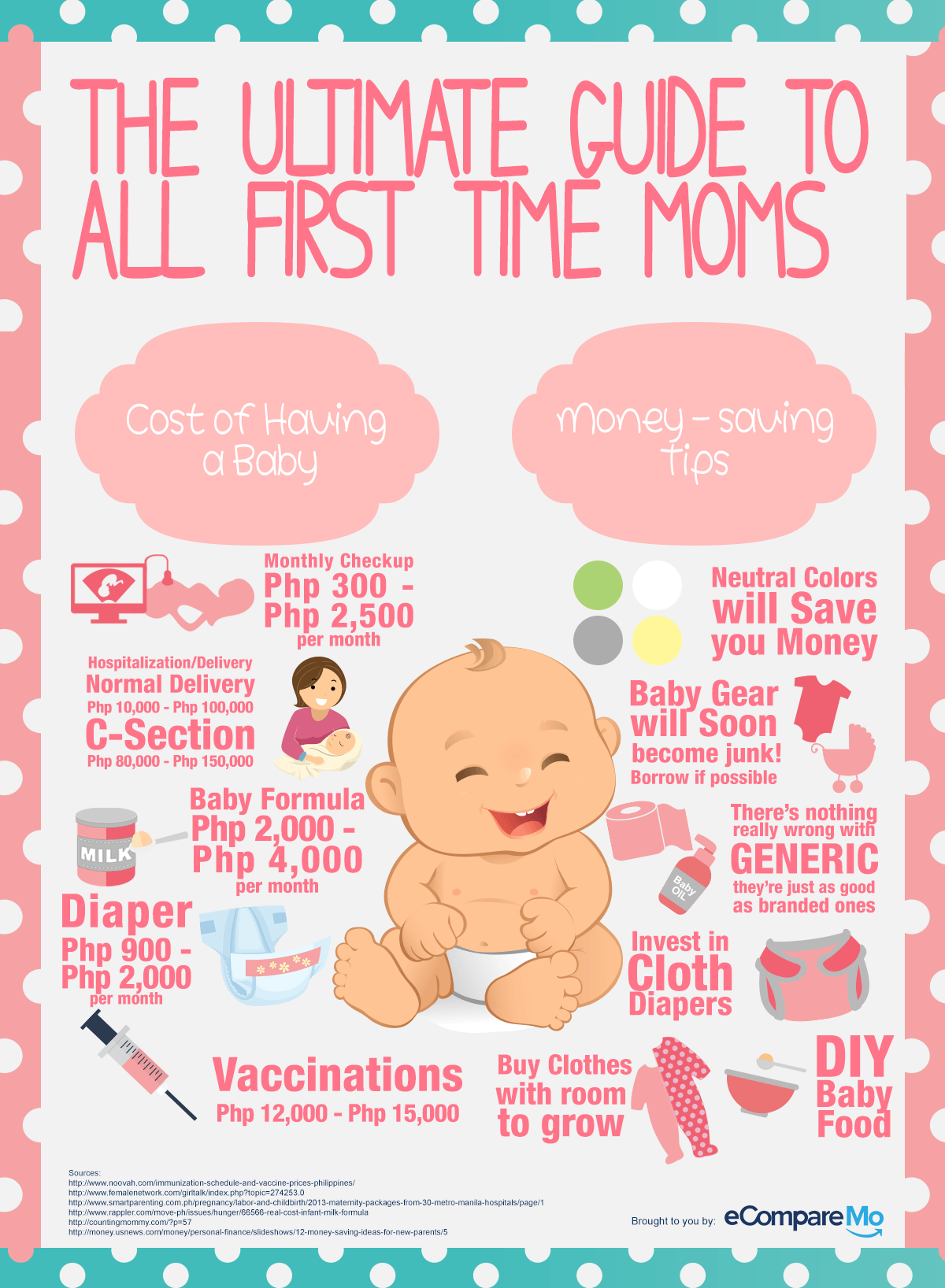The Ultimate Guide For All First-Time Moms
3 min readAlongside the body changes, mood swings, sleepless nights, and diaper-changing responsibilities, having your firstborn can take a toll on other aspects of your life, and at home in general. With the newest addition to your family, budgeting your finances can be a daunting task. Here’s a tip sheet to get you by.

Here is an instant training wheels for all first time mommies! Below is a breakdown to help you manage your budget with your first baby.
Cost of Having a Baby in the Philippines
| Monthly Check-Up | P300 – P2,500 per month Tip: Do a background check first on performance and professional rate before choosing a permanent go-to ob-gyne. |
| Hospitalization / Delivery | Normal: P10,000 – P100,000 C-Section: P80,000 – P150,000 Tip: Rates vary depending on the professional rate of medical practitioners and the type of accommodation (ward, semi-private, private). Utilize your PhilHealth benefits and other health insurance you have. |
| Formula Milk | P2,000 – P4,000 per month Tip: Breastfeed your baby if you can produce milk. This is the healthiest option and can significantly help you save on expense. |
| Diapers | P900 – P2,000 per month Tip: Test some brands first to decide which of your options do not irritate your baby’s skin and which is the most efficient in keeping your baby dry. Then, buy in bulk. |
| Immunization | P12,000 – P15,000 Tip: Opt for combined vaccines and ask your pediatrician for discounted rates. |
Moneysaving tips for moms
For Clothes, Gears, and Other Baby Stuff
Choose gender-neutral items. Getting baby items with neutral colors will save you on expenses in the future as these baby stuff can be used as hand-me-downs to your next child. Green, gray, white, and yellow are good color options.
Ask for secondhand clothes and gear from relatives and friends. Be resourceful and ask your family and friends for secondhand baby gear and clothes. Either way, your baby will quickly outgrow their clothes, and they will only be needing gear for a few months.
(See Related Topic:Â INFOGRAPHIC: How Much Pregnancy Really Costs In The Philippines)
Avoid buying nursing clothing. It is not necessary to shed a huge amount of cash to shop for new clothes when you are nursing your baby. Be resourceful and review your closet, as zip-ups and button-ups can be functional for breastfeeding too.
Purchase clothes with room to grow. Babies balloon fast. Make sure that you get items that are sizes bigger than the current so your baby can wear or use them for longer months.
There’s nothing wrong with generic. Miscellaneous items like cotton balls and baby oil are good as branded. The only difference is that they are cheaper, which is good for you budget.
Something borrowed. Ask your mommy friends and relatives for unused clothes, strollers, bassinets, breast pumps, nursing clothes etc. Borrowing things you need is okay as you will only use them for several months, so buying too much will only seem a bit of a waste.
Invest in cloth diapers. Frequent nappy changing is a pain to your pocket. Washable diaper is an alternative to lower your diaper expense. Schedule it on days when you have a lot of time to wash.
Milk and baby food
DIY baby food. Share meals with your baby. Cook foods that you can mash like potatoes, carrots, and rice. It will only require a small portion on your plate so you won’t have to buy prepared foods.
Ask your doctor for coupons and samples. Your friendly pediatrician surely has a pile of samples and coupons of baby products. Using them can save you on expenditures for a couple of weeks.
